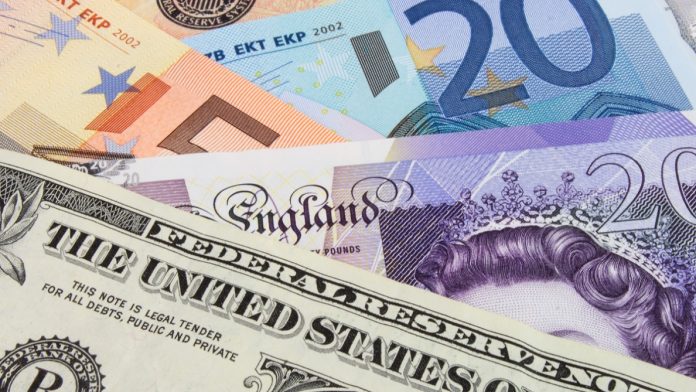The pound reached a one-week-high versus the euro on Tuesday as investors gained confidence that the UK could leave the EU with a deal in place. Meanwhile the euro declined on weak German data. The pair closed up 0.4% at €1.1717. The pound—euro exchange rate was slipping lower in early trade on Wednesday.
| What do these figures mean? |
|---|
| When measuring the value of a pair of currencies, one set equals 1 unit and the other shows the current equivalent. As the market moves, the amount will vary from minute to minute. If the euro amount increases in this pairing, it’s positive for the pound. Or, if you were looking at it the other way around:1 EUR = 0.87271 GBPIn this example, €1 is equivalent to approximately £0.87. This measures the euro’s worth versus the British pound. If the sterling number gets larger, it’s good news for the euro. |
The pound picked up in the previous session after Eurosceptic and head of the pro-Brexit European Research Group (ERG) Jacob Rees—Mogg publicly declared his support for UK Prime Minister Theresa May’s Brexit deal. Theresa May’s strategy of threatening a long delay to Brexit if her deal is not supported, appears to have worked.
However, not all Eurosceptics Conservatives are willing to support Theresa May’s Brexit deal. This puts into doubt Theresa May’s ability to get her deal through Parliament. If Theresa May believes she has enough support, she is considering holding another meaningful vote. However, she may be forced to set a departure date for stepping down as PM in order to get the deal through.
Today Parliament will hold indicative votes on different Brexit options. These range from cancelling Brexit to a no deal Brexit. The votes start today and will continue until Monday. Any signs of Parliament supporting a softer Brexit could help lift the pound.
| Why is a “soft” Brexit better for sterling than a “hard” Brexit? |
|---|
| A soft Brexit implies anything less than UK’s complete withdrawal from the EU. For example, it could mean the UK retains some form of membership to the European Union single market in exchange for some free movement of people, i.e. immigration. This is considered more positive than a “hard” Brexit, which is a full severance from the EU. The reason “soft” is considered more pound-friendly is because the economic impact would be lower. If there is less negative impact on the economy, foreign investors will continue to invest in the UK. As investment requires local currency, this increased demand for the pound then boosts its value. |
Will ECB’s Draghi Pull Euro Lower?
The euro declined in the previous session as investors digested a mixed bag of eurozone data. Whilst German consumer confidence failed to live up to analyst expectations, French GDP numbers surpassed them.
Consumer morale in Germany unexpectedly declined heading towards April. When consumer confidence weakens, consumer spending often slows, which is bad news for the economy. This is particularly poignant given that domestic demand will need to drive the German economy as exporters struggle amid the global slowdown, Brexit and the ongoing trade dispute.
| Why does poor economic data drag on a country’s currency? |
|---|
| Slowing economic indicators point to a slowing economy. Weak economies have weaker currencies because institutions look to reduce investments in countries where growth prospects are low and then transfer money to countries with higher growth prospects. These institutions sell out of their investment and the local currency, thus increasing supply of the currency and pushing down the money’s worth. So, when a country or region has poor economic news, the value of the currency tends to fall. |
Meanwhile in France the picture is slowly starting to improve. Economic growth in France beat analysts’ expectations at 1%.
Investors will now look ahead to European Central Bank President Mario Draghi speaking today. The ECB has been dovish in its recent meetings. Investors will be listening carefully to assess whether Draghi is turning more dovish amid increasing signs of slowing momentum in Germany’s economy.
This publication is provided for general information purposes only and is not intended to cover every aspect of the topics with which it deals. It is not intended to amount to advice on which you should rely. You must obtain professional or specialist advice before taking, or refraining from, any action on the basis of the content in this publication. The information in this publication does not constitute legal, tax or other professional advice from TransferWise Inc., Currency Live or its affiliates. Prior results do not guarantee a similar outcome. We make no representations, warranties or guarantees, whether express or implied, that the content in the publication is accurate, complete or up to date. Consult our risk warning page for more details.
This article was initially published on TransferWise.com from the same author. The content at Currency Live is the sole opinion of the authors and in no way reflects the views of TransferWise Inc.





